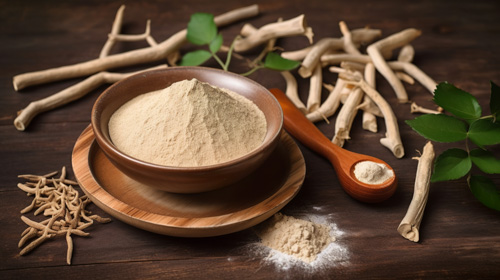Withania somnifera, commonly known as ashwagandha or winter cherry, is a revered evergreen shrub native to India, the Middle East, and parts of Africa. A member of the Solanaceae family—which includes tomatoes, potatoes, and nightshades—this potent herb has been a cornerstone of Ayurvedic medicine for centuries. Unlike its botanical relatives, ashwagandha belongs to an elite class of healing plants called adaptogens, known for their ability to help the body resist physical, mental, and emotional stress.
The Modern Stress Epidemic
In today’s fast-paced world, chronic stress has become an inescapable burden, weakening immunity, accelerating aging, and exacerbating conditions like anxiety, depression, and heart disease. When stress strikes, the body releases cortisol, triggering a cascade of fight-or-flight responses: rapid heartbeat, heightened glucose levels, and hyper-focused alertness. While these reactions are vital for short-term survival, prolonged stress keeps cortisol elevated, leading to inflammation, fatigue, and cellular damage.
How Ashwagandha Helps
Scientific research supports what traditional healers have long known—ashwagandha offers profound protective and restorative benefits:
- Balances cortisol – Helps regulate stress hormones, easing tension and anxiety.
- Fights inflammation – Reduces oxidative damage linked to chronic disease.
- Supports brain health – Enhances memory, focus, and cognitive function.
- Boosts immunity – Strengthens the body’s natural defense mechanisms.
- May slow aging – Promotes vitality and resilience at a cellular level.
- Potential anti-cancer properties – Early studies suggest protective effects against tumor growth.
Traditional Wisdom Meets Modern Use
For thousands of years, Ayurvedic practitioners have harnessed ashwagandha’s powdered root to restore energy, improve sleep, and enhance overall well-being. Today, it’s widely available as a supplement in capsules, tinctures, and teas—though more clinical research is needed to confirm its efficacy for specific medical conditions.
Safety and Side Effects
While generally safe in moderate doses, excessive intake may cause digestive discomfort, including nausea or diarrhea. Long-term effects remain understudied, so consulting a healthcare provider before use is advisable—especially for pregnant women, those on medications, or individuals with autoimmune conditions.
Final Thoughts
In a world where stress is a constant, ashwagandha stands as a time-tested ally, offering a natural way to restore balance, resilience, and vitality. Whether used as a daily tonic or a targeted supplement, this ancient adaptogen may hold the key to thriving in modern life.
Have you tried ashwagandha? Share your experience in the comments!
Find Ashwagandha SupplementsAshwagandha: Is it helpful for stress, anxiety, or sleep?
Disclaimer:
The information provided on this site is for informational and entertainment purposes only and is not intended as medical advice. Natural supplements may affect individuals differently. Always consult a qualified healthcare professional before starting any new supplement, treatment, or health program.
